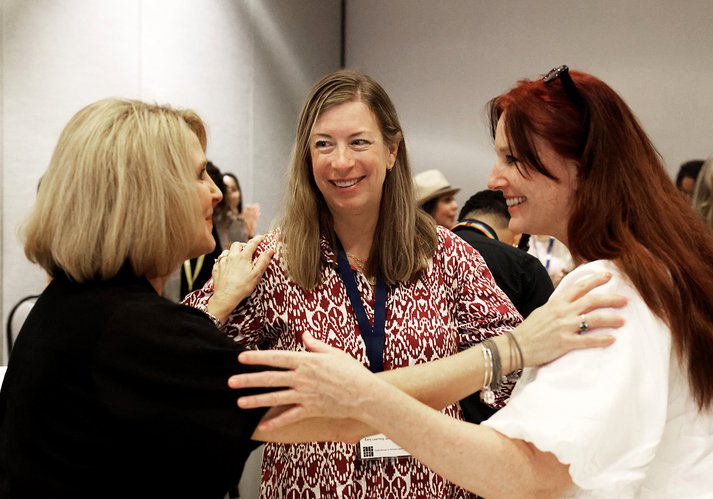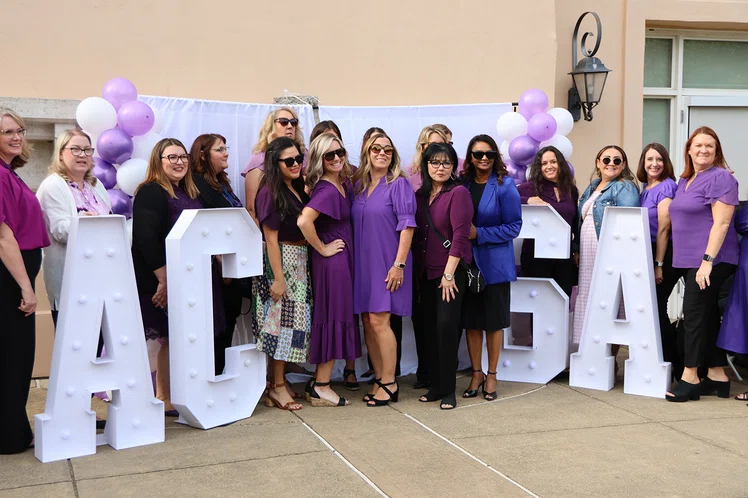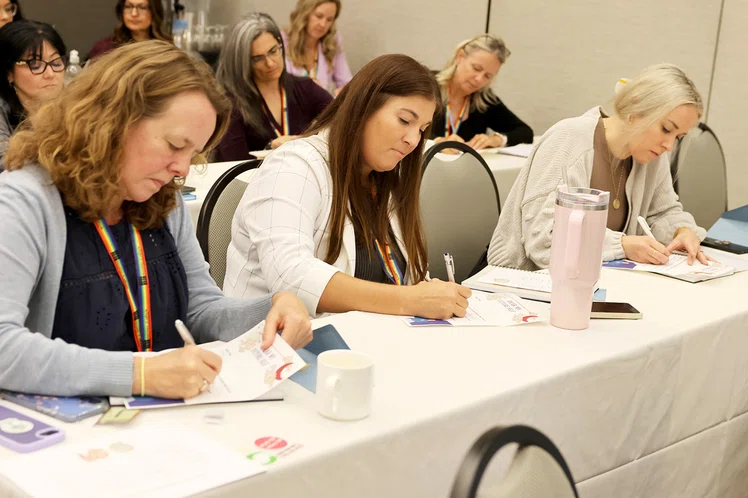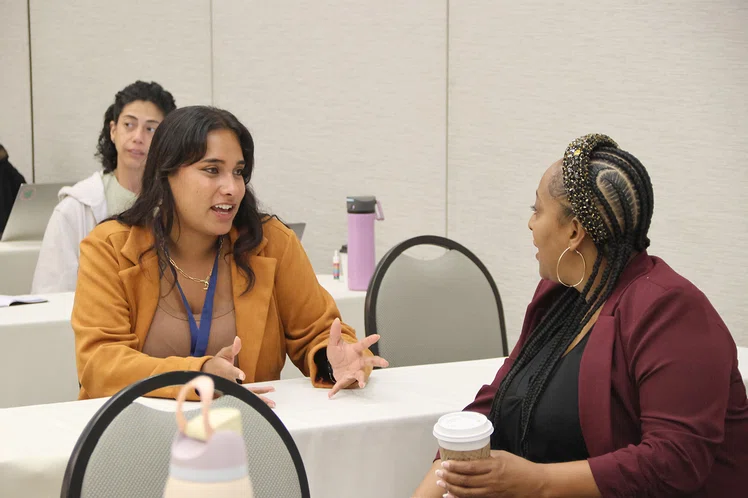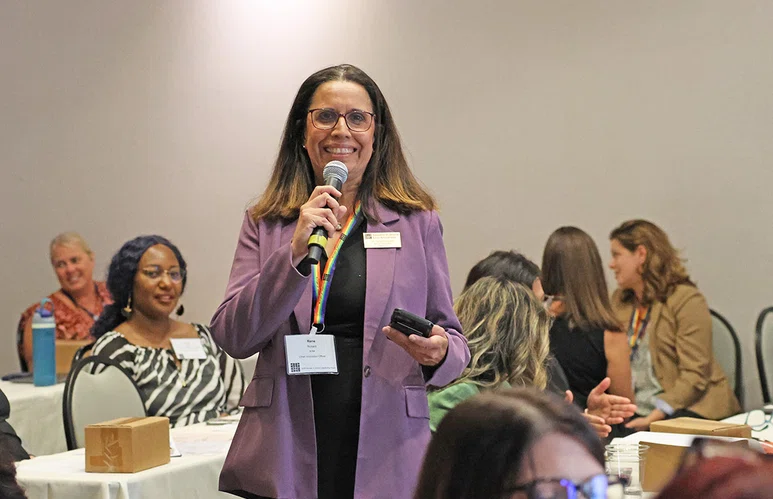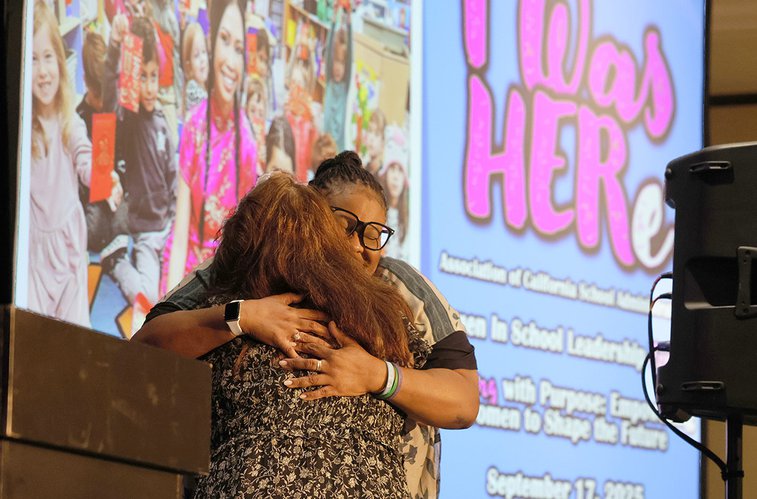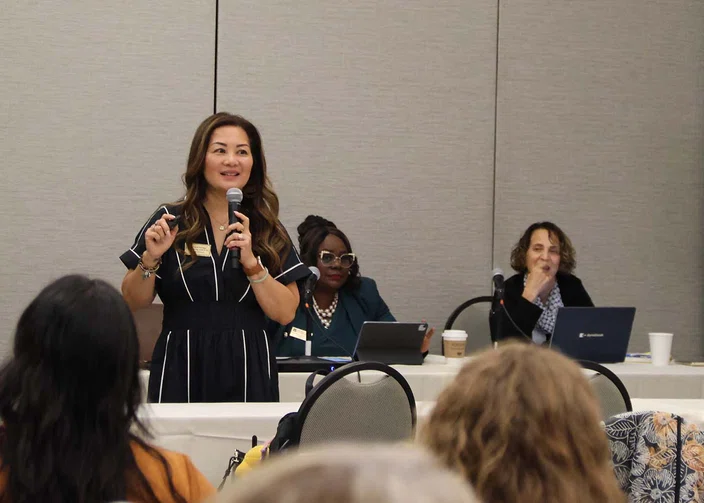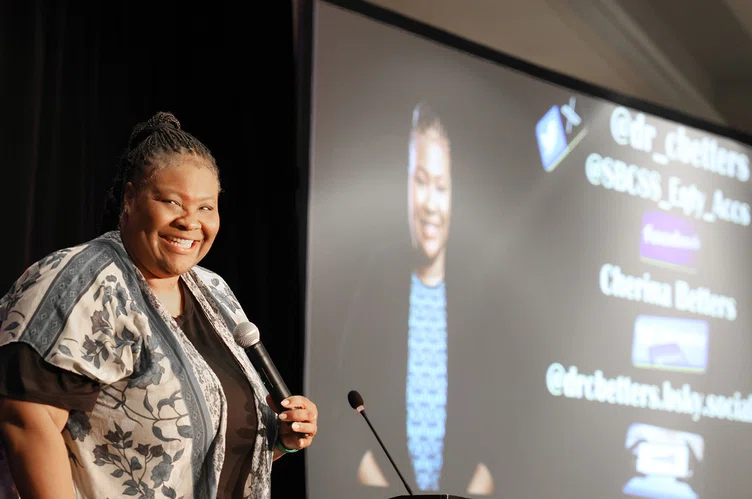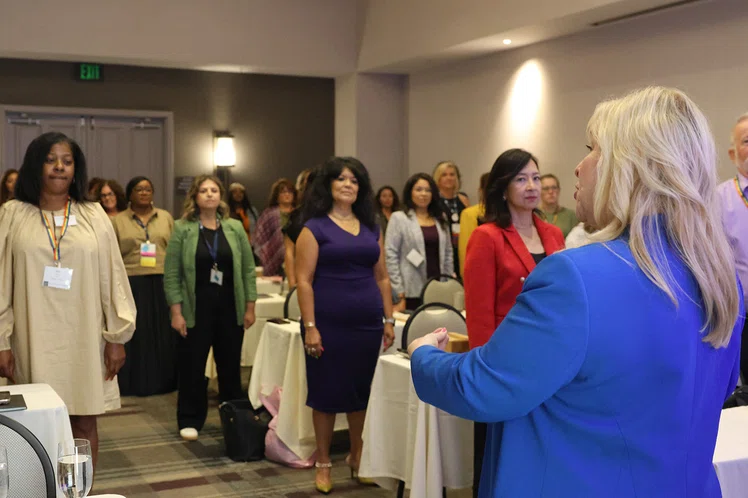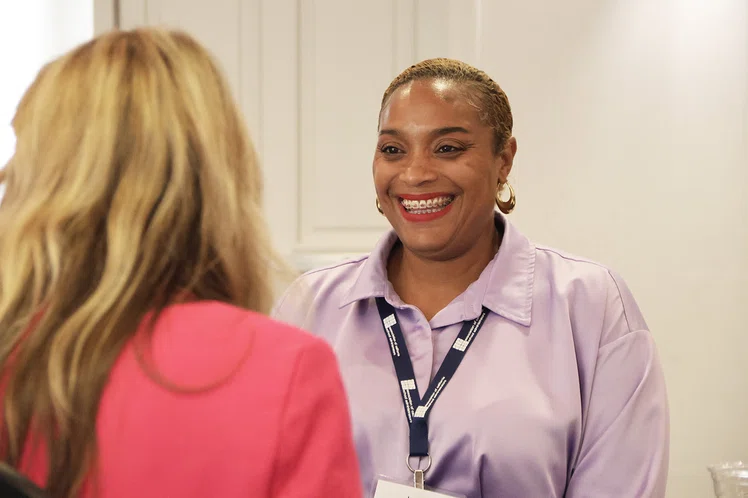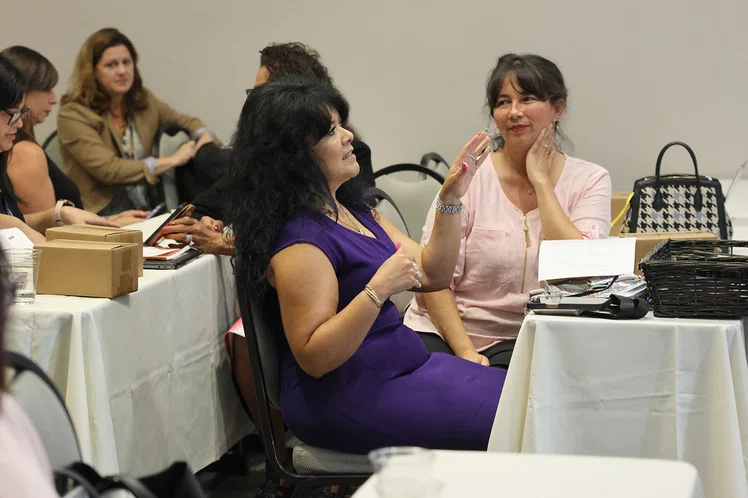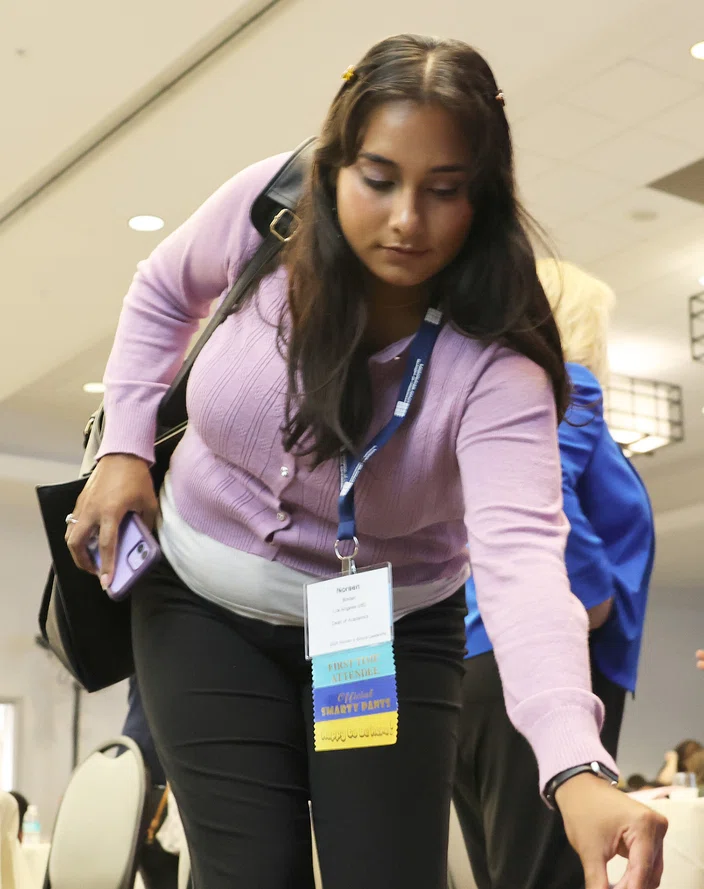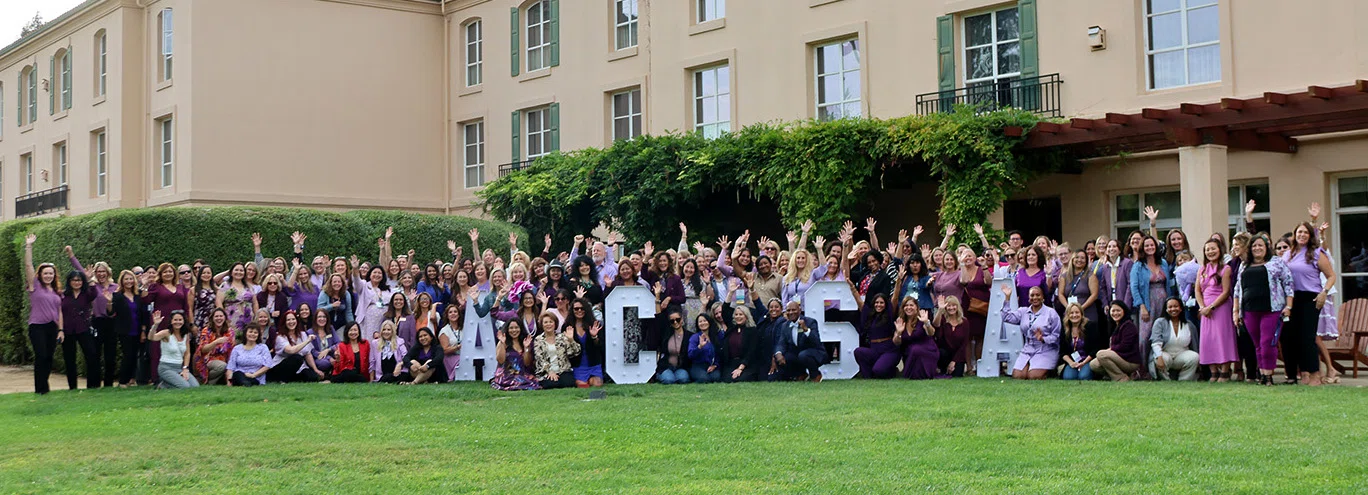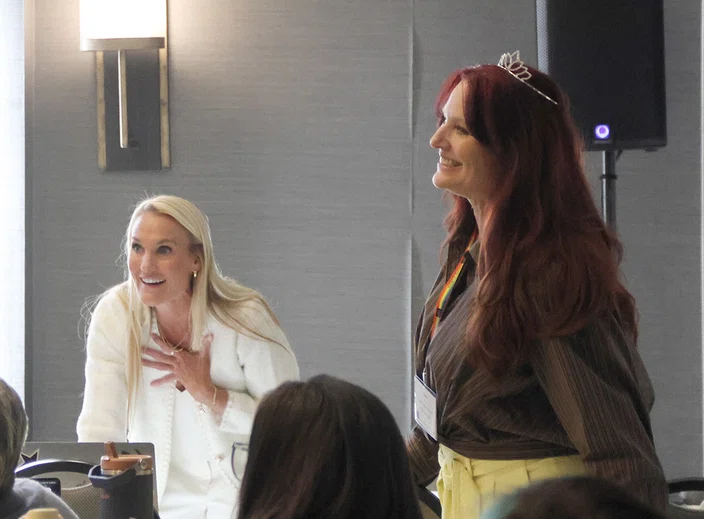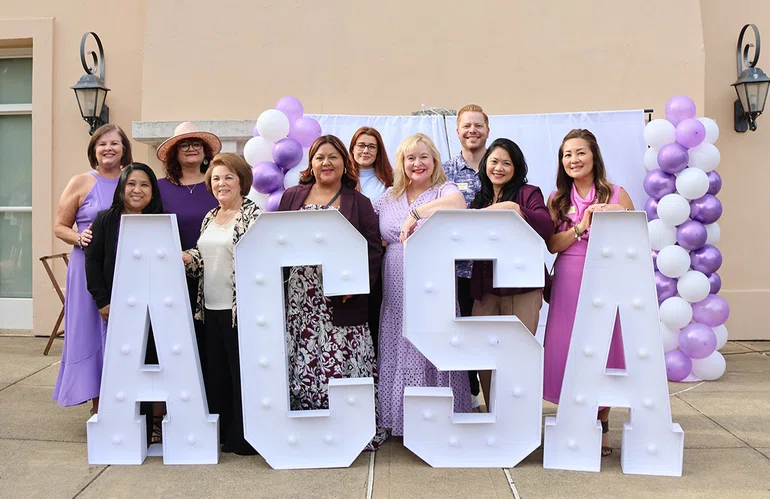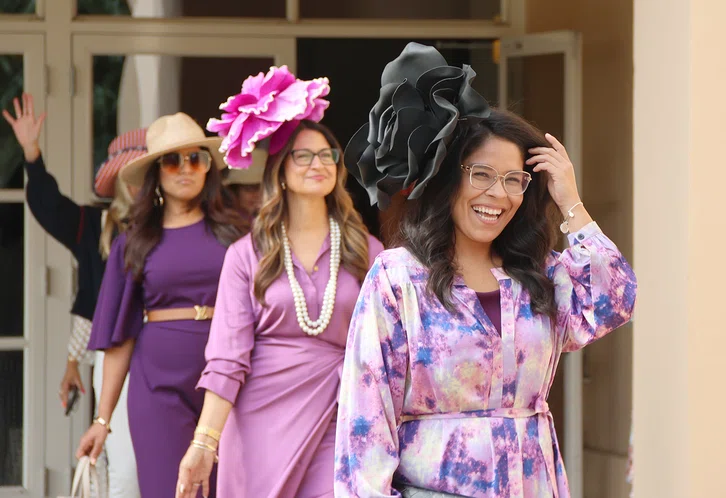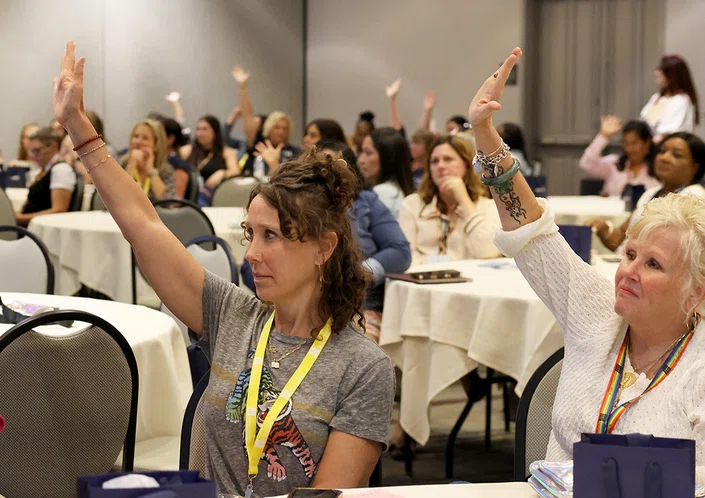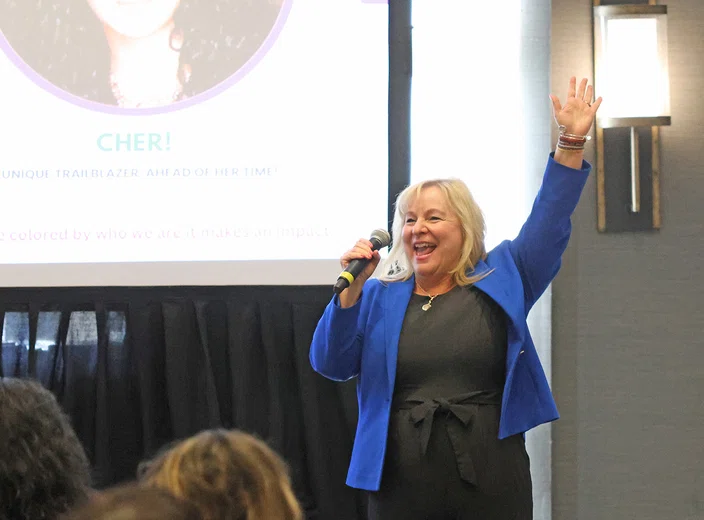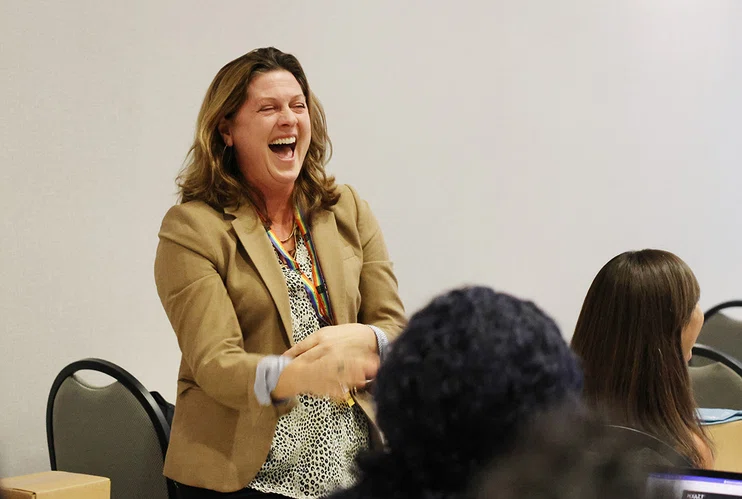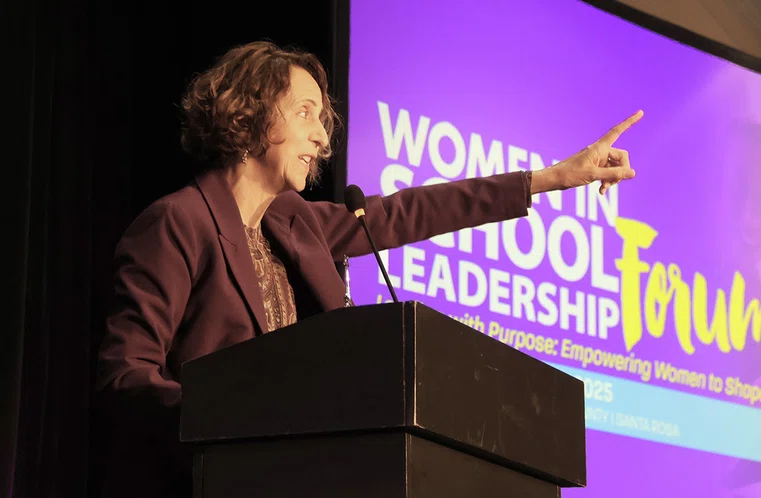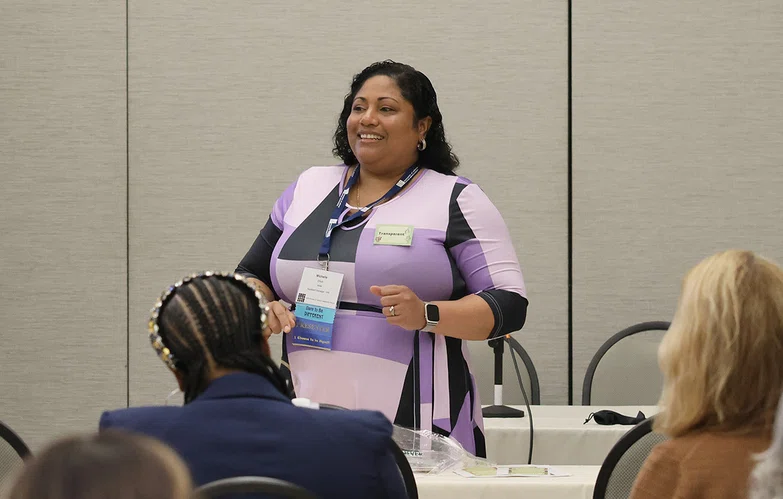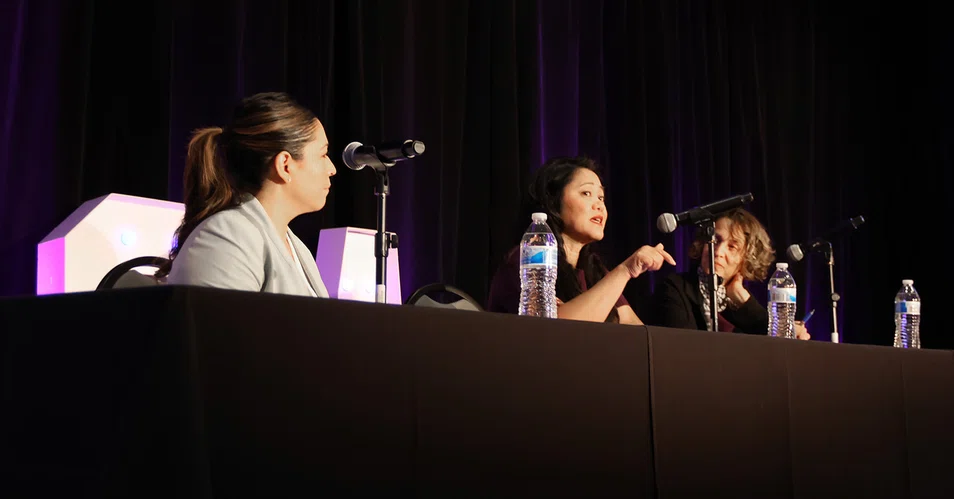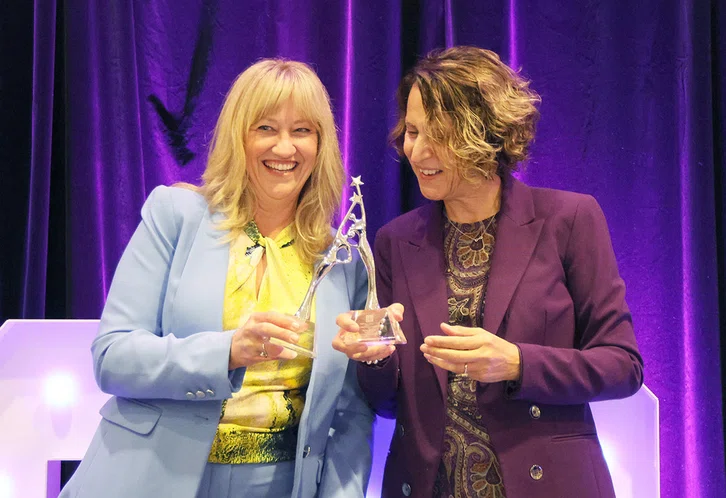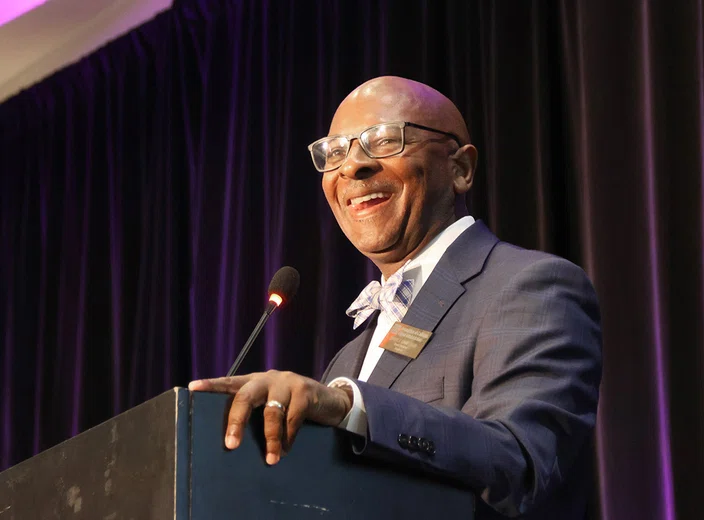What does it feel like to be seen and heard? To feel safe sharing something you’ve never talked about before?
What does it feel like to wear a tiara? Or to speak with a belly full of confidence? What’s it like to “vibe code” with 30 other women?
What does it feel like to have a whole room cheering for you to stand up and say your name?
These are just some of the things attendees felt at ACSA’s 2025 Women in School Leadership Forum. More than 200 female school leaders gathered in Santa Rosa Sept. 17-19 to empower and uplift one another.
Planning Committee Chair Irma Sanchez welcomed attendees and encouraged them to amplify what they learn at the conference.
“I believe that knowledge is power when applied and shared,” said Sanchez, executive assistant to the superintendent in Ontario-Montclair School District. “I want to encourage each and every one of you to take what you learn over the next few days and share it — share it with those who look to you for guidance, support and leadership.”
Districts including Ceres USD and Kern High School District sent several of their female leaders to the conference. Megan Gregor, assistant superintendent of Human Resources with Kern HSD, said the district brought 14 of their female leaders, mostly principals, to the conference for the first time. She said that the team is benefiting from having dedicated time to discuss their learnings together.
“I think for women in particular the message that ‘we can care but we don’t have to carry it’ was so powerful,” Gregor said.
Sasha Lopez, a senior director with LAUSD, was attending her first ACSA conference at the suggestion of a mentor.
“She was really adamant that I should go ahead and come out here and get to know people, and I’m really glad I came,” said Lopez, who recently moved to California. “Just to be in the company of great women has been really inspirational.”
Another first-time attendee, Dr. Joan Schumann, founder and CEO of Leading for Learning, said she would often not share her Ph.D. with others because she thought it intimidated people, especially female colleagues.
When Schumann shared this during the session “Breaking Through Together” presented by ACSA Deputy Executive Director Margarita Cuizon-Armelino and ACSA President-elect Dr. Rene Rickard, they insisted that she stand up and say her name — with her doctor title — confidently.
“I had just never been in this elevated educational context where ... so many women weren’t ashamed to be recognized in that way,” Schumann said. “It was really fun and sweet and powerful and emotional for me to be around women who were saying, ‘No way! You should never be ashamed of that!’ It was very healing.”
Here are some other moments experienced at this year’s conference.
Staying curious: In her session “The Curiosity Advantage,” Lauren Berlin shared communication strategies for when tensions are high. “When we meet fire with fire, we get a bigger fire,” she said. She encouraged attendees to stop thinking about how to “win” the conversation and start asking questions. Berlin provided examples of clarifying questions to find out what is happening for the other person, exploring questions to find out what’s underneath and reframing questions to shift the conversation toward solutions.
Mock interviews: Attendees signed up for mock interviews to get instant feedback on their interviewing skills from Erin Roberts, assistant superintendent of HR with Oakley Union ESD, and Norma Gonzalez, director of Employee and Labor Relations, Human Resources for UC Merced. Attendee Jessica Koahou, transportation director with Colton Joint USD, said the experience was enlightening and gave her insights from an HR perspective. “It was important for me because I do want to move up,” said Koahou, who aspires to a superintendent role. “I wanted to make sure that I had the opportunity to sit down with a specialist, someone who has perfected this craft, and be able to get feedback.”
“I was HERe”: During her opening keynote address, Dr. Cherina Betters, chief of equity and access at San Bernardino County Superintendent of Schools, inspired women to see themselves as vessels for change. Betters shared that walking in your purpose liberates others around you to do the same. She had attendees commit to being their true selves by repeating the following: “Who I am is who I am, and who I am is non-negotiable. If where I am does not make space for who I am, I will not change who I am, I will change where I am.”
Radical self care: Thursday’s keynote presenter was Nicole Steward, a school social worker who was exposed to the trauma experienced by the young people she served. Steward shared her research on how trauma-adjacent work comes at a cost to our health. Through practices like remembering our why, setting boundaries and finding peer support, we can prioritize mental, physical, emotional and spiritual care in our lives every day. “Because the work that we do is radical, then the care that we need must be just as radical to meet the weight of the work,” Steward said.
Emotional labor: During their session “Breaking Through Together,” Cuizon-Armelino and Rickard led a discussion on how women can partner with other women to break through systemic barriers. Cuizon-Armellino spoke about the emotional labor often assumed by professional women — such as celebrating birthdays, cheering up staff or delivering bad news. “You almost become the Office Mom,” Cuizon-Armelino said. “That’s an expectation society has of us, even in professional circles.”
Your authentic voice: In her session, “Own the Room — Even if You Tremble,” Dr. Benita Scheckel helped attendees find their unique voice — literally and figuratively. Using her background in theater and singing, Scheckel led attendees through posture, breathing and vocal exercises that will help them command the room. But she also spoke about the power of being authentic to who we are. She shared a story about being told she should hide her “perkiness” from her students. “I tried to be someone else — and it was exhausting,” she said. “And then I just thought, well, what’s going to happen if I’m just 5-foot-2 Benita? You know — those kids loved me.”
Representation matters: ACSA President Dr. Daryl Camp told a story about a talk he gave to third-graders about bias. He surveyed the class about what gender they thought did different jobs, like firefighter and nurse. When he said “lawyer,” the class answered, “male.” Camp asked a little girl why, and she said, “Because girls aren’t smart enough.” “What type of system did I create or did I not dismantle for that to get in her head?” Camp asked. He said students notice who holds roles in leadership. He told women in the audience: “You need to be present here and everywhere because your presence means something to somebody.”
Exemplary women: During the luncheon on Thursday, ACSA honored the two winners of this year’s Exemplary Woman in Education Award: Cali Binks, superintendent of Yucaipa-Calimesa Joint USD, and Parvin Ahmadi, who recently retired as superintendent of Castro Valley USD. Binks reflected on the privilege educators have to serve children — and that it’s easier for her to give awards than receive them. “I’ve had to sit back and be here and be grateful and just appreciate this great moment. I’m just so blessed,” Binks said. Ahmadi shared that the best gift has been knowing that her successor, Dr. Nia Rashidchi, would continue the work she started in Castro Valley USD along with the district’s team. “It isn’t about just us — it’s about the capacity we build and support. ... Nothing can get done with one person,” Ahmadi said.
Double consciousness: In the session “Navigating Leadership: Embracing Double-Consciousness and Authenticity as Strengths,” Dr. Tracie Noriega, Dr. Patricia Brent-Sanco and Parvin Ahmadi shared their journeys and how being authentic can be an asset. But amid a backdrop of prejudice, it can also create conflict. “Have you ever felt that you were a person split in two?” Brent-Sanco asked before exploring W.E.B. Du Bois’ concept of double consciousness — how you see yourself and how society sees you. “Ladies, if there’s a word I can give you today, it’s ‘You’re enough.’” Brent-Sanco said.
Vibe coding: During the session “She Leads with AI,” Dr. Amy Alzina and Traci King introduced three AI platforms that they said would be gamechangers for education leaders: Gamma, NotebookLM and Lovable. “You want to watch the magic?” Alzina said before clicking a button to generate an LCAP presentation in seconds. “You will no longer dread putting a presentation together ever again!” Attendees were encouraged to get out their laptops and phones to “vibe code” and create an app using prompts. They created apps for attendance tracking, educator wellness journeys, and teacher walk-throughs. “You just made that!” King said, congratulating an attendee.
Panel Discussion
To close out the conference on Friday, ACSA President Dr. Daryl Camp led a panel discussion featuring three female superintendents: Dr. Karla Estrada, deputy superintendent of instruction, LAUSD; Eileen Aguba Chen, superintendent, Robla ESD; and Parvin Ahmadi, retired superintendent, Castro Valley USD. Here’s how they responded to one of Camp’s questions.
Camp: How do you stay grounded in your values while navigating complex educational systems?
Aguba Chen: “I grew up in a Title I community. I'm a Title I product and my district is a Title I community. I have a standard of excellence in what we do. ... You do not want to work and support my students? You are welcome to find a job in a neighboring district — and that’s OK. I cringe when I hear ‘This is good enough.’ Good enough is the enemy to doing our best. ... I have to advocate for those students, because that was me.”
Ahmadi: Kids don’t have a choice. They come to us. ... We have to create systems where we would put our own child in any classroom, anywhere and if that’s not the case .. we need to help people get better. But don’t wait too long because kids don’t have all year. ... I think you have to surround yourself with people who will do that good work. Look at your hiring practices, find people who are passionate about that work.”
Estrada: “How many of you have been in a meeting and you have to ask yourself, I thought we do this work because we care about kids? ... We know why we do this work — it’s about kids, and the kids are waiting for us to get it right. There's always all kinds of agendas that you're trying to work through as you’re trying to deliver that. ... [My advice is] do not be afraid to keep the kids’ voice at the center of the table ... [and] create trust. ... If you’re going to be vulnerable enough to say things need to change, that also means that you have to be vulnerable enough to create a space where we can talk about it.”




